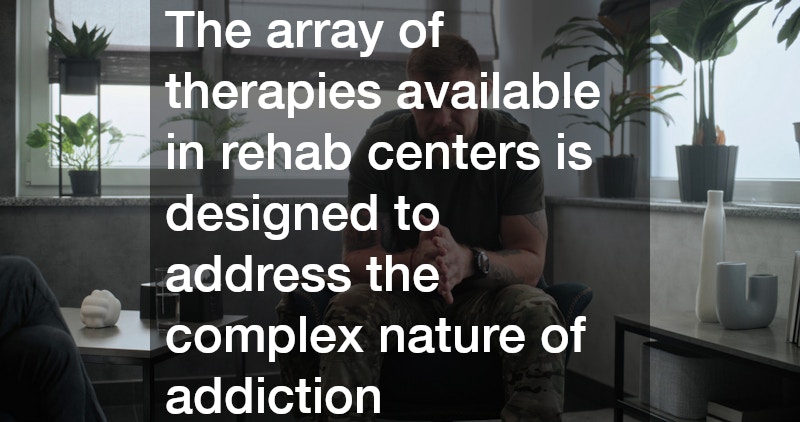In the face of substance abuse and addiction, rehab centers offer a structured environment to facilitate recovery and long-term wellness. Explore the major reasons why one might consider checking into a rehab center to address common concerns and questions.
Getting Recovery Support
Rehab centers support recovery by providing a structured environment where patients can focus completely on healing, without the distractions and temptations of their usual surroundings. This change in environment is crucial, as it allows individuals to take a step back from their daily stressors and triggers, which is essential for initiating the recovery process.
Additionally, these facilities employ experienced and trained professionals who have a deep understanding of addiction and recovery, which means they can tailor treatment plans specifically to each individual’s needs.
Moreover, rehab centers offer comprehensive care that includes medical detoxification to manage withdrawal symptoms safely. This medical oversight can be crucial for individuals who have been using substances heavily, as withdrawal can sometimes lead to severe health complications. By having access to 24/7 medical care, patients can navigate the initial stages of sobriety more comfortably and with greater assurance. Importantly, the structured schedule inside rehab programs instills discipline and a sense of routine, helping patients rebuild their lives.
Additionally, rehab centers create a community of peers who are on similar recovery journeys. This camaraderie and shared experience foster a supportive environment where individuals can share their struggles and triumphs, knowing they are not alone. It’s this support system that often provides the encouragement needed to continue on the path of sobriety. The relationships built in these centers can form a vital part of the long-term support network that individuals rely on to maintain their recovery after leaving the facility.
Recieving Therapy
The array of therapies available in rehab centers is designed to address the complex nature of addiction. Cognitive Behavioral Therapy (CBT) is commonly used to help patients identify and change negative thinking patterns and behaviors that contribute to their addiction. This form of therapy empowers individuals with strategies to manage cravings and avoid relapses by understanding the triggers that lead to substance use. Group therapy is another fundamental component, offering patients the chance to draw strength and insights from shared experiences and communal healing.
In addition to traditional therapies, many rehab centers offer holistic treatment methods, which consider the whole person and not just the addiction. This can include therapies such as yoga, meditation, acupuncture, and art therapy, aiming to heal the mind, body, and spirit. These approaches can be particularly beneficial in reducing stress and anxiety, which are often underlying issues in addiction. By engaging in these activities, patients can learn new ways to cope with emotions and stressors in their lives.
Some facilities incorporate family therapy, which is designed to repair and strengthen family dynamics that may have suffered due to the individual’s substance use. By involving family members in the recovery process, patients can rebuild trust and improve communication, paving the way for better support systems outside of the rehab environment. This therapeutic approach reinforces the understanding that addiction affects not just the individual but their entire support network, and comprehensive healing must include all those impacted.
Deciding to Go to a Rehab Center
Choosing a rehab center over other recovery methods can offer several unique benefits, starting with the immersive environment they provide. Unlike outpatient programs or self-help strategies, rehab centers offer 24/7 access to immediate support and medical care, which is particularly vital during the initial stages of sobriety. This level of support can significantly increase the odds of successful detoxification and reduce the risk of premature relapse.
Moreover, the comprehensive range of therapies provided in residential settings allows for a personalized treatment plan that can address the specific needs of each patient. This contrasts with outpatient or self-directed programs, which may not offer the same level of individualized attention and care. The holistic approach taken in many rehab centers can integrate mental, physical, and emotional health components, offering a more complete path to recovery.
Additionally, rehab centers provide a community of peers who understand the challenges of addiction, which can be both motivational and reassuring. This peer interaction offers a sense of belonging and reduces feelings of isolation, which can be prevalent in other recovery methods. The shared experiences and camaraderie encountered in rehab can form lasting relationships and networks that support sustained sobriety and a healthier, more connected life.
Rehabilitation centers provide a comprehensive approach to overcoming addiction, offering tailored care and support at every stage of recovery. Understanding the benefits and resources available helps individuals make informed decisions about their journey to sobriety. Through structured programs, diverse therapies, and ongoing support, rehab centers play a vital role in facilitating long-term sobriety and empowering individuals to lead fulfilling lives free from the constraints of addiction.

